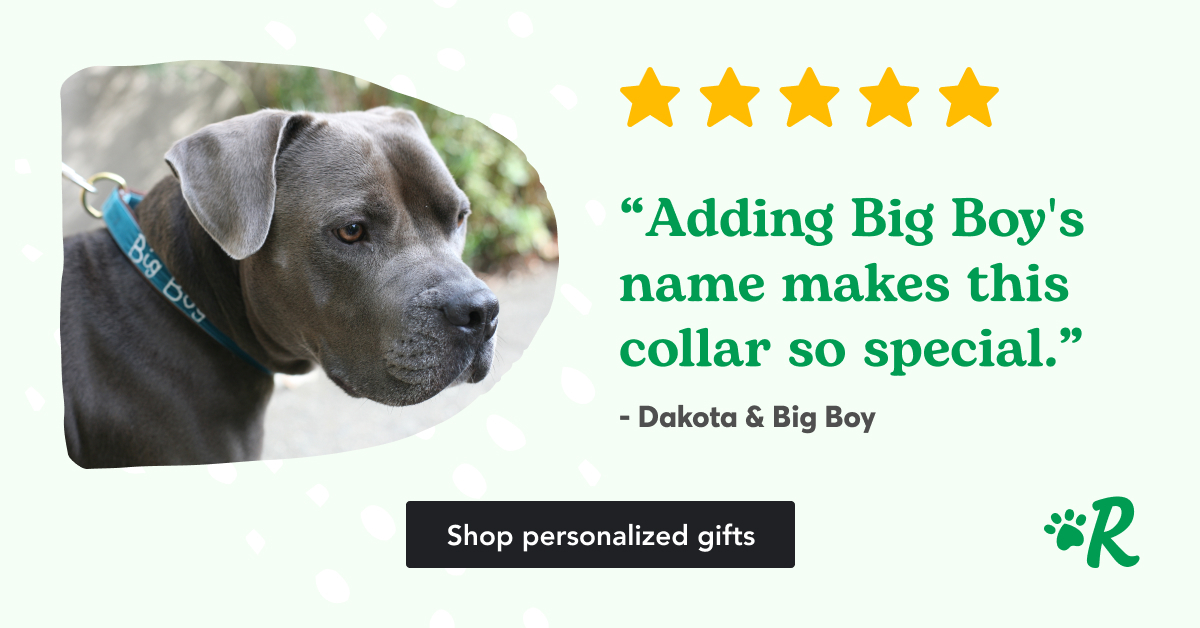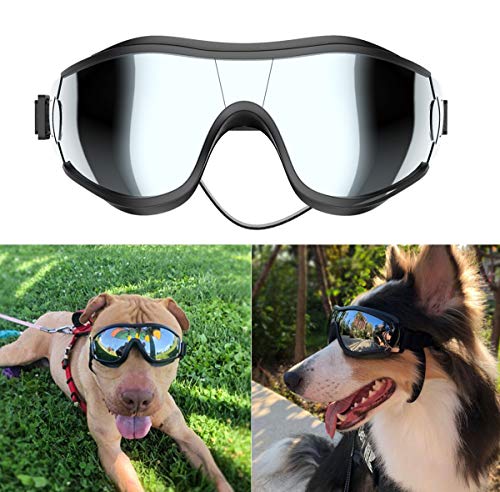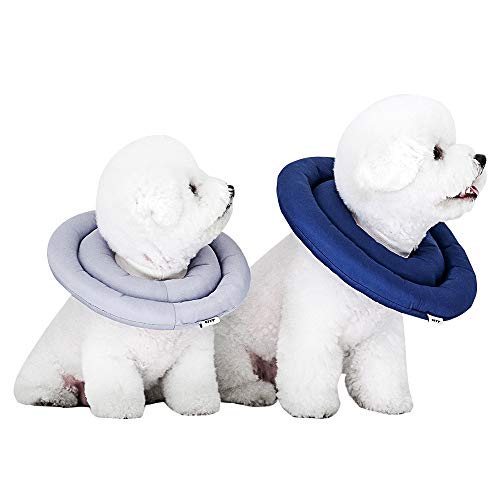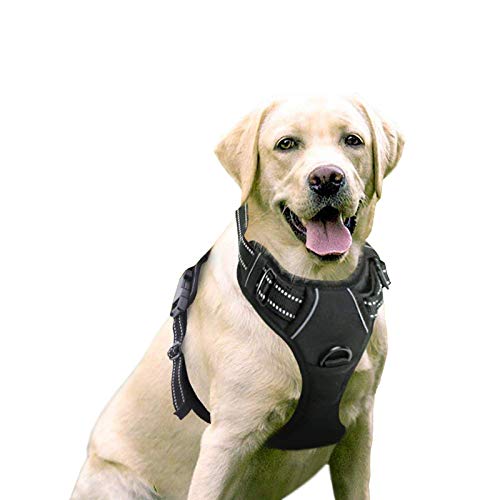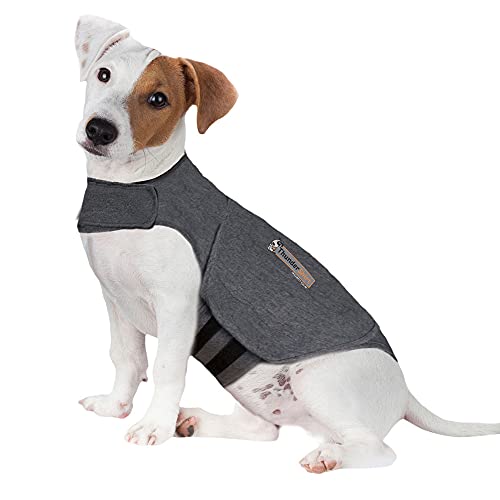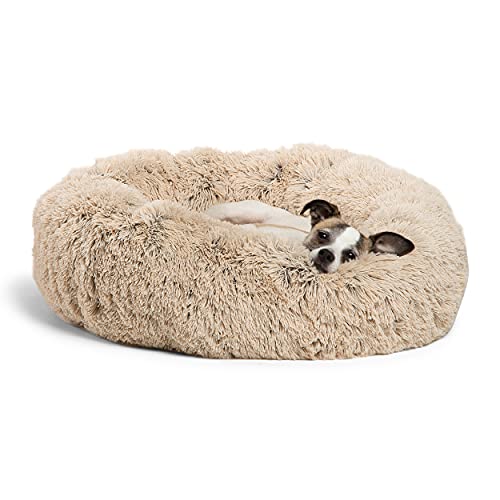- This post contains affiliate links. Read more here.
- Not a substitute for professional veterinary help.
This article is not meant to serve as medical or veterinary advice. If you are concerned that your dog may have glaucoma, or is experiencing eye discomfort of any kind, please get in touch with your veterinarian immediately.
Glaucoma may be a scary word but there are ways of keeping an eye out (no pun intended) for it—especially in dog breeds that are at increased risk for the condition. Glaucoma can be more effectively treated when caught in its early stages, to the point of saving vision in the eye. To help you get familiar with glaucoma, we’ve rounded up some basic facts about the disease.
What is glaucoma in dogs?
Glaucoma is basically increased pressure within the eyeball that gradually causes loss of sight. Within the eye, between the lens and the cornea, is a clear, thick fluid called aqueous humor. Aqueous humor nourishes eye tissue and helps the eye keep its shape. When the production and drainage of aqueous humor fluid are balanced, pressure within the eye is normal. When this fluid isn’t draining properly, pressure will build within the eye. This causes the eye to stretch in order to make room for the extra fluid.
There are two types of glaucoma that affect dogs:
Primary glaucoma: This type is inherited and occurs mainly in certain breeds. Both eyes will be affected.
Secondary glaucoma: This type occurs when there is an obstruction of the interocular drain within the eye. This can be caused by blunt force trauma (not unknown for dogs), retinal detachment, a tumor, lens fluctuations, and more. Secondary glaucoma can affect only one eye or both.
Both types of glaucoma can impact a dog’s eyesight and potentially result in vision loss.
Are certain dogs more prone to glaucoma?
Glaucoma can affect any dog but some breeds are more prone to it including Cocker Spaniels, Basset Hounds, Shiba Inus, Chow-Chows, and Shar-Peis. In addition, female dogs are about twice as likely to get glaucoma as males. Onset is more typical in older dogs.
What are the signs of glaucoma in dogs?
Unlike in humans, where glaucoma can occur gradually, glaucoma in dogs can can set in rapidly—literally not there one day and there the next.
The most common signs of glaucoma in dogs include:
Headache: A dog might express this by pressing his or her head to the floor or wall.
Eye pain: Many times, dogs will try rubbing at the eye with a paw.
Eye swelling: The eye may appear to be swollen or protruding.
Cloudy eye: The eye appears to be cloudy, usually with an opaque, bluish tinge.
Red eye: The eyes appear cloudy but with a red color.
Dilated pupil: This happens when a pupil is not responding normally to light.
Loss of vision: A dog may begin to frequently bump into things.
Lethargy: A loss of energy, combined with any of the above signs.
Less frequent signs of glaucoma include squinting and rapid, frequent blinking as well as mild discharge from the eye. If any of these are occurring in your dog your veterinarian can determine what is causing the symptoms and recommend treatment.
Are there any products that can help dogs with glaucoma?
Aside from medications and treatments prescribed by your veterinarian, there are some products out there that can help protect your dog’s eyes as well as provide her with extra comfort. Read on.
Because glaucoma adds pressure to a dog’s eyes, you don’t want to exacerbate the situation by placing something tight around their eyes. At the same time, if you have an active dog and/or live in a place that is windy or dusty, you’ll want to protect those delicate peepers. These doggy goggles can help without being too constrictive—they are fully adjustable and have cushy foam edges to ensure a cozy fit.
The dreaded cone of shame has come a long way! These soft collars provide more of a “bumper” than a barrier around your dog’s neck and aren’t as scary and loud as rigid cones can be. While they don’t provide as much protection for dogs who bump into things, this type of soft collar is very helpful if your dog tends to paw at their eyes.
Constriction of a dog’s neck can increase cerebral pressure, so a harness is preferable to a collar, particularly for dogs with glaucoma. A quality harness such as this no-pull version redirects pressure to a dog’s chest, ensuring those sweet peepers remain as stress-free as possible. It’s a great option because it comes in many sizes, is adjustable, and has reflective strips—your pup may not see so well but that doesn’t mean others can’t see them!
It can be unsettling and uncomfortable for your dog to not be able to see as well as they once did. It may result in a bit of anxiety. The ThunderShirt applies gentle pressure around the torso, which helps to reduce anxiety in over 80 percent of dogs. Many dog people swear by this jacket to ease their pet’s fears so if you notice your pup getting a bit frustrated, this could be a great option to help soothe them.
As we can all attest to, there’s nothing better than a cozy bed when you’re not feeling quite right. Donut beds are all the rage for a reason—they’re comfy as heck! A plus of the donut bed is its soft, rounded edges, leaving no angles for your dog with glaucoma to accidentally poke at if they don’t see too well. It’s also cute, comes in lots of colors, and is easily washable.
If you have a dog with glaucoma or vision problems, you’ve probably already faced some stiff vet bills. Pet insurance might be worth considering. We’ve taken a detailed look at the pros and cons of various pet health insurance options to help take the guesswork and confusion out of it all.
Dogs are resilient and trusting friends. With you as their guide, there is plenty of light at the end of the tunnel for dogs with glaucoma and other vision problems.
